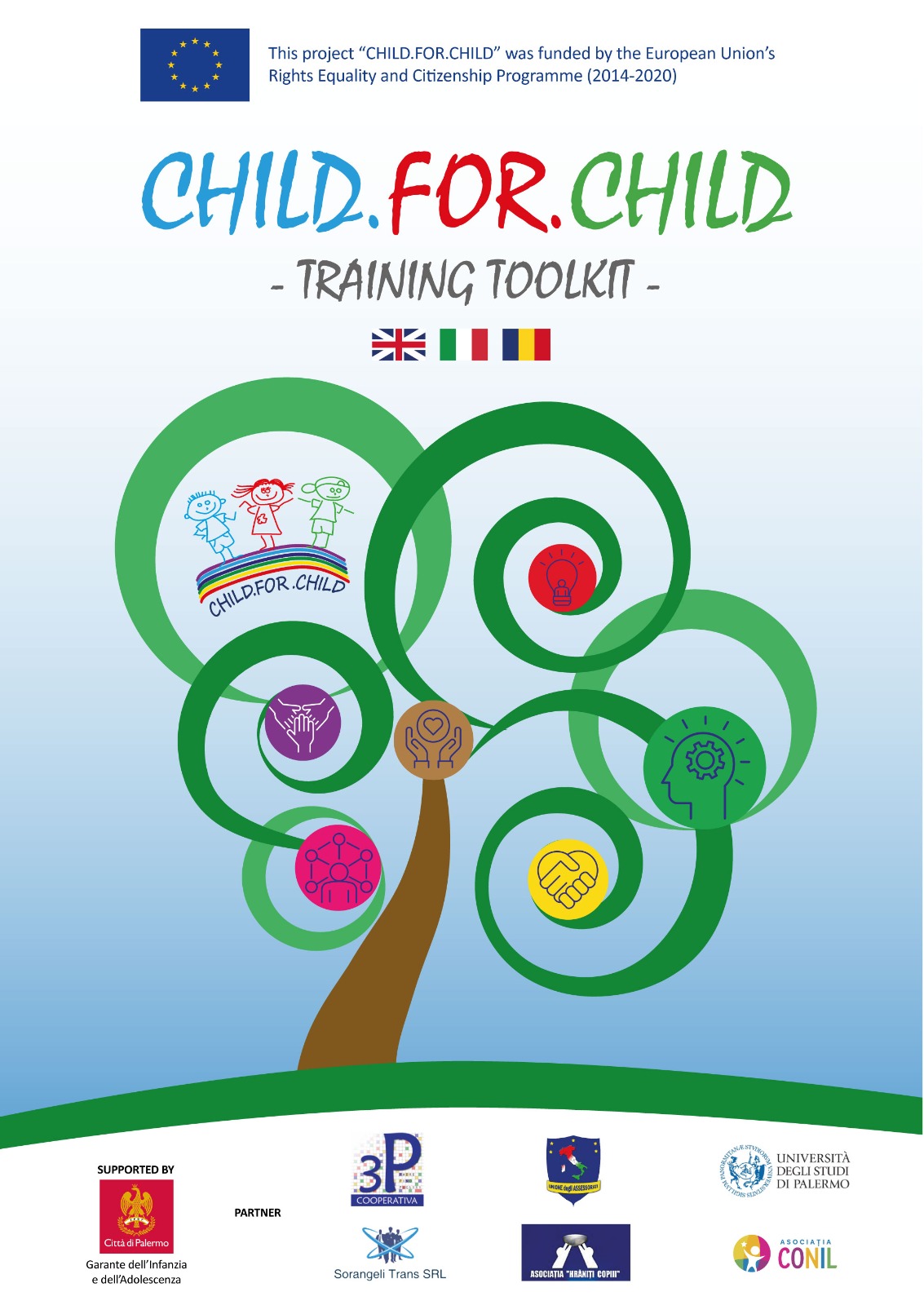TRAINING MODULES
The CHILD project. FOR. CHILD has as its main objective to support reception centers for children outside the family in order to help the children inserted to achieve a level of autonomy sufficient to ensure their transition to adult life. In fact, the phenomenon of “careleavers”, literally “those who leave care”, that is, all those children removed from their family of origin who are protected by the State until the eighteenth year of life, at most up to twenty-first year if there is an educational or work project in progress, and who, upon reaching this age, must leave the reception circuits and live a life in “autonomy”.
In this scenario, an attempt was made to understand what good practices at European level had been activated for the protection of these children and an intensive needs analysis was carried out which included not only careleavers, but also children between 14 and 16 years of age, those who work closely with these children, educators, social workers, psychologists, community leaders , and finally political decision-makers and representatives of the territorially competent institutions. In involving them we had the precious support of the office of the Guarantor of childhood and adolescence of the municipality of Palermo, and the Municipality of Bucharest – sector IV.
The purpose of the various training modules is to transfer skills or updating skills to the recipients of training throughout the process of welcoming and managing the child out of the family in the light of the changes taking place and the new methodologies applied in Europe.
First of all, it is necessary to increase knowledge of the phenomenon in the population, in the institutions and in the political decision-makers so that these children do not feel alone, and above all so that their needs, but also their desires and hopes, are heard. In this way it is possible to work on new programs that point to the acquisition of a level of autonomy of the boy that puts him in a position to be ready to leave the reception when the time comes. But to do this it also takes intensive networking that involves services, public and private institutions and the involvement of the family of origin where it can be a resource.
It is important to take into account the fact that only autonomy projects included in the PEI since the entry of the child into the community, but also into the foster family, can help the young person to work in the right direction of increasing acquisition of self-awareness, sense of responsibility, resilience and empowerment. This is regardless of the age of entry of the child into the community, starting from the acquisition of basic autonomy up to the upper autonomies. And the keyword becomes “synergy” between all the actors involved in the process. Furthermore, now more than ever it is necessary for evaluation and monitoring tools to be incorporated into community work, so as to monitor the progress of the activities that are being carried out, to assess their strengths and weaknesses, so as to have a clearer picture of the work that is being done.
The main objectives of this training material are:
• Raising awareness of the phenomenon of children out of work
• Improve the management of out-of-family children in communities
• Increase the implementation of programs aimed at acquiring greater autonomy
• Provide data on the situation of communities hosting children outside the family in Palermo and Bucharest

